
On Creaturely Life
¥241.33
In his Duino Elegies, Rainer Maria Rilke suggests that animals enjoy direct access to a realm of being-the open-concealed from humans by the workings of consciousness and self-consciousness. In his own reading of Rilke, Martin Heidegger reclaims the open as the proper domain of human existence but suggests that human life remains haunted by vestiges of an animal-like relation to its surroundings. Walter Benjamin, in turn, was to show that such vestiges-what Eric Santner calls the creaturely-have a biopolitical aspect: they are linked to the processes that inscribe life in the realm of power and authority.?Santner traces this theme of creaturely life from its poetic and philosophical beginnings in the first half of the twentieth century to the writings of the enigmatic German novelist W. G. Sebald. Sebald's entire oeuvre, Santner argues, can be seen as an archive of creaturely life. For Sebald, the work on such an archive was inseparable from his understanding of what it means to engage ethically with another person's history and pain, an engagement that transforms us from indifferent individuals into neighbors.?An indispensable book for students of Sebald, On Creaturely Life is also a significant contribution to critical theory.

Bloodtaking and Peacemaking
¥241.33
Dubbed by the New York Times as "e;one of the most sought-after legal academics in the county,"e; William Ian Miller presents the arcane worlds of the Old Norse studies in a way sure to attract the interest of a wide range of readers. Bloodtaking and Peacemaking delves beneath the chaos and brutality of the Norse world to discover a complex interplay of ordering and disordering impulses. Miller's unique and engaging readings of ancient Iceland's sagas and extensive legal code reconstruct and illuminate the society that produced them.People in the saga world negotiated a maze of violent possibility, with strategies that frequently put life and limb in the balance. But there was a paradox in striking the balance-one could not get even without going one better. Miller shows how blood vengeance, law, and peacemaking were inextricably bound together in the feuding process.This book offers fascinating insights into the politics of a stateless society, its methods of social control, and the role that a uniquely sophisticated and self-conscious law played in the construction of Icelandic society."e;Illuminating."e;-Rory McTurk, Times Literary Supplement"e;An impressive achievement in ethnohistory; it is an amalgam of historical research with legal and anthropological interpretation. What is more, and rarer, is that it is a pleasure to read due to the inclusion of narrative case material from the sagas themselves."e;-Dan Bauer, Journal of Interdisciplinary History
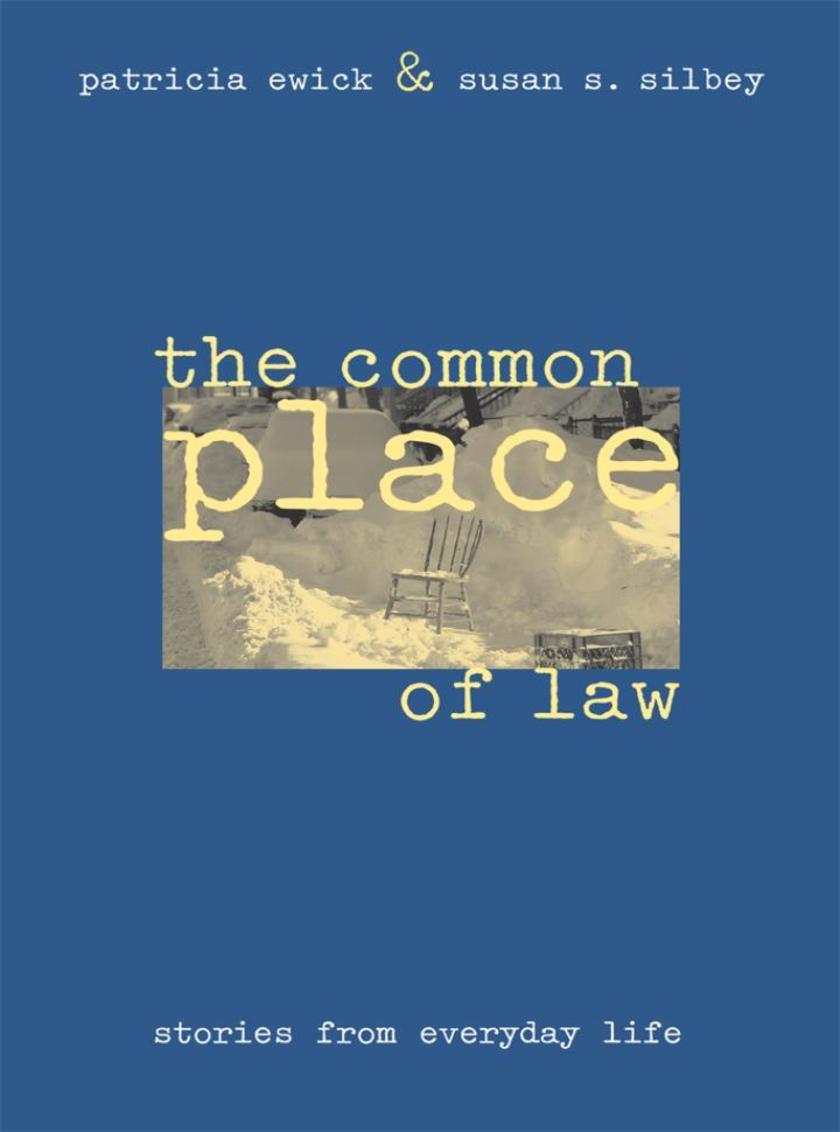
Common Place of Law
¥241.33
Why do some people not hesitate to call the police to quiet a barking dog in the middle of the night, while others accept the pain and losses associated with defective products, unsuccesful surgery, and discriminationPatricia Ewick and Susan Silbey collected accounts of the law from more than four hundred people of diverse backgrounds in order to explore the different ways that people use and experience it. Their fascinating and original study identifies three common narratives of law that are captured in the stories people tell.One narrative is based on an idea of the law as magisterial and remote. Another views the law as a game with rules that can be manipulated to one's advantage. A third narrative describes the law as an arbitrary power that is actively resisted. Drawing on these extensive case studies, Ewick and Silbey present individual experiences interwoven with an analysis that charts a coherent and compelling theory of legality. A groundbreaking study of law and narrative, The Common Place of Law depicts the institution as it is lived: strange and familiar, imperfect and ordinary, and at the center of daily life.
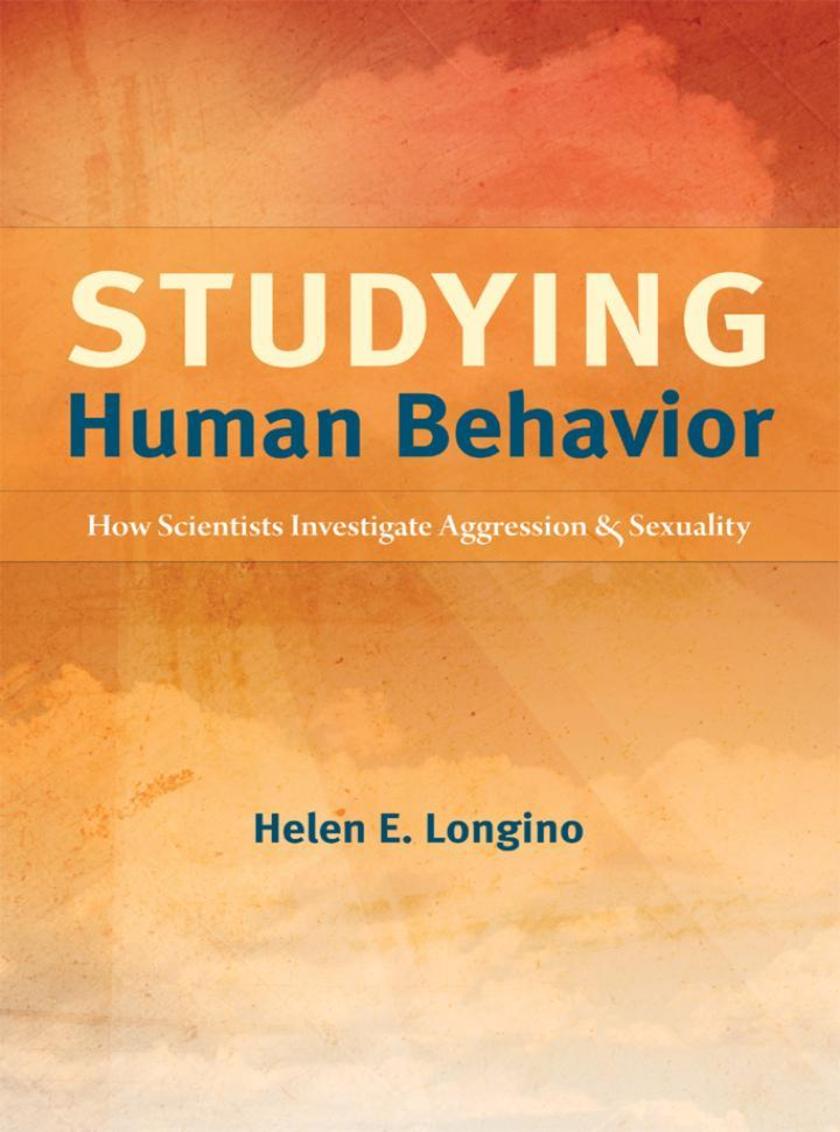
Studying Human Behavior
¥241.33
In Studying Human Behavior, Helen E. Longino enters into the complexities of human behavioral research, a domain still dominated by the age-old debate of "e;nature versus nurture."e; Rather than supporting one side or another or attempting to replace that dichotomy with a different framework for understanding behavior, Longino focuses on how scientists study it, specifically sexual behavior and aggression, and asks what can be known about human behavior through empirical investigation.?She dissects five approaches to the study of behavior-quantitative behavioral genetics, molecular behavior genetics, developmental psychology, neurophysiology and anatomy, and social/environmental methods-highlighting the underlying assumptions of these disciplines, as well as the different questions and mechanisms each addresses. She also analyzes efforts to integrate different approaches. Longino concludes that there is no single "e;correct"e; approach but that each contributes to our overall understanding of human behavior. In addition, Longino reflects on the reception and transmission of this behavioral research in scientific, social, clinical, and political spheres. A highly significant and innovative study that bears on crucial scientific questions, Studying Human Behavior will be essential reading not only for scientists and philosophers but also for science journalists and anyone interested in the engrossing challenges of understanding human behavior.
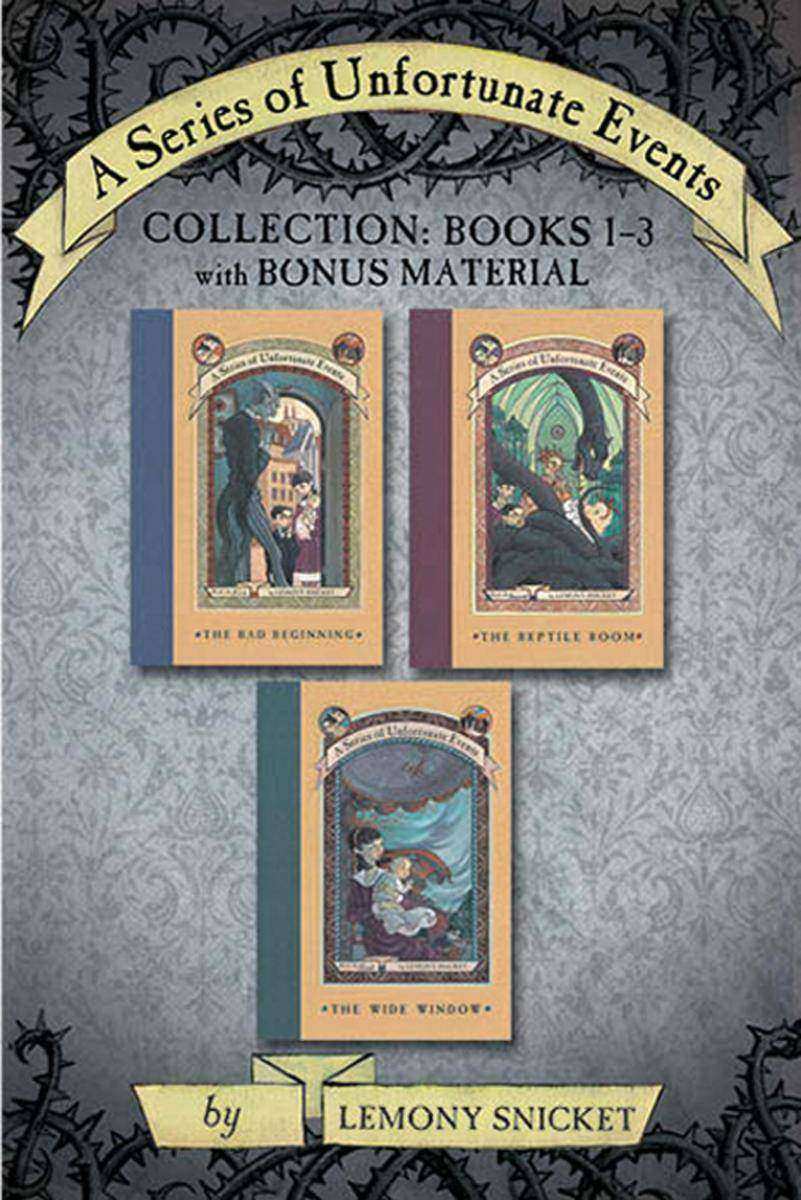
A Series of Unfortunate Events Collection: Books 1-3 with Bonus Material
¥240.48
Lemony Snicket’s unhappy tale of the unlucky Baudelaire siblings begins with The Bad Beginning. In this short bothersome book alone, the three orphans encounter a greedy and repulsive villain, itchy clothing, a disastrous fire, a plot to steal their fortune, and cold porridge for breakfast.Should you not mind deadly serpents, slippery salamanders, lumpy beds, large brass reading lamps, long knives, and terrible odors, then proceed with caution to the second book in the miserable series, The Reptile Room.Readers unbothered by inclement weather, hungry leeches, and cold cucumber soup will want to continue with the third installment, The Wide Window. Others will not.If you’ve got the stomach to wade through the first three tragic tales in Lemony Snicket’s A Series of Unfortunate Events, then this troubling collection might be the one for you. Several loathsome extras, including a compilation of unsettling quotations and a very disturbing portrait, await those who successfully complete the wretched journey. You’ve been warned!
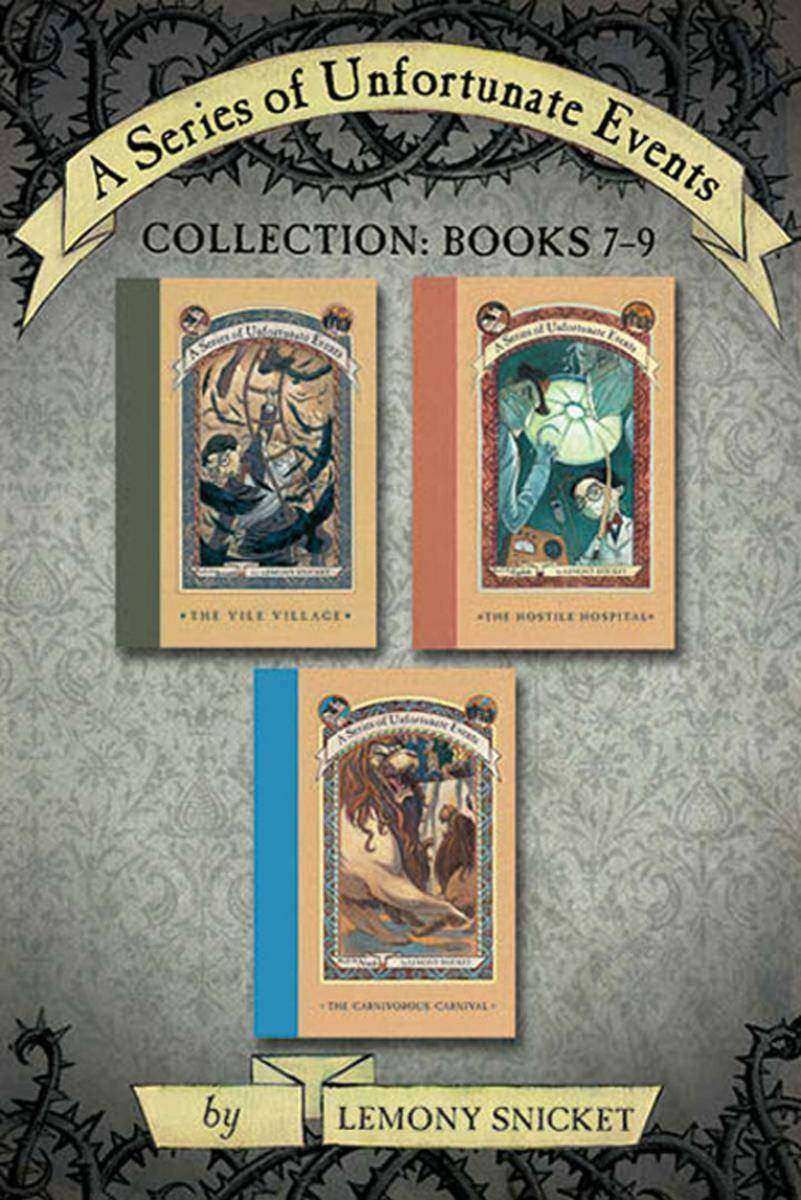
A Series of Unfortunate Events Collection: Books 7-9
¥240.48
A Warning from the Publisher:Would you rather sprain your ankle, bruise your hip, and lose a toe to frostbite on the same dayOr would you rather have these accidents happen on three different days?This electronic collection of volumes 7 through 9 in A Series of Unfortunate Events by Lemony Snicket is the e-equivalent of having three ghastly accidents right in a row. Contained here are such unpleasantries as kidnapping, disguise, murder, paperwork, another disguise, heart-shaped balloons, false allegations, stiletto heels, a shattered crystal ball, a cryptic map, an irritating song, and quite a few more disguises, all bundled together into a continuous barrage of horror and dismay.The more sensible approach would be to read The Vile Village, The Hostile Hospital, and The Carnivorous Carnival months or even years apart from one another, so you have time to recuperate from the misery each volume offers—or better yet, to turn your eyes away from Mr. Snicket's work and find an electronic experience that would cause you no distress whatsoever.

The Secrets of Crittenden County
¥239.87
Join New York Times and USA Today bestselling author Shelley Shepard Gray for a visit to Amish Country! Get all three novels in Shelley Shepard Gray's The Secrets of Crittenden County series in one e-book, including: Missing, The Search, and Found. The Secrets of of Crittenden County trilogy delivers page-turning romance and mystery involving a death from mysterious circumstances that invites the scrutiny of the outside world, all set in the quiet Amish community of Crittenden.

Wes Anderson Collection: Isle of Dogs
¥239.56
The Wes Anderson Collection: Isle of Dogs is the only book to take readers behind the scenes of the beloved auteur's newest stop-motion animated film. Through the course of several in-depth interviews with film critic Lauren Wilford, writer and director Wes Anderson shares the story behind Isle of Dogs's conception and production, and Anderson and his collaborators reveal entertaining anecdotes about the making of the film, their sources of inspiration, the ins and outs of stop-motion animation, and many other insights into their moviemaking process. Previously unpublished behind-the-scenes photographs, concept artwork, and hand-written notes and storyboards accompany the text. The book also features an introduction by critics and collaborators Taylor Ramos and Tony Zhou, and a foreword by critic Matt Zoller Seitz. The fourth volume of the New York Times bestselling Wes Anderson Collection, Isle of Dogs stays true to the series with its rich design and colorful illustrations, capturing Anderson's signature aesthetic vision and bringing the series's definitive study of Anderson's filmography up to date.Isle of Dogs tells the story of Atari Kobayashi, 12-year-old ward to corrupt Mayor Kobayashi. When, by Executive Decree, all the canine pets of Megasaki City are exiled to a vast garbage-dump called Trash Island, Atari sets off alone in a miniature Junior-Turbo Prop and flies across the river in search of his bodyguard-dog, Spots. There, with the assistance of a pack of newly-found mongrel friends, he begins an epic journey that will decide the fate and future of the entire Prefecture. The film features the voices of Bryan Cranston, Koyu Rankin, Edward Norton, Bob Balaban, Bill Murray, Jeff Goldblum, Kunichi Nomura, Akira Takayama, Greta Gerwig, Frances McDormand, F. Murray Abraham, Tilda Swinton, Akira Ito, Yoko Ono, Mari Natsuko, Harvey Keitel, Courtney B. Vance, Ken Watanabe, Scarlett Johnasson, Fisher Stevens, Nijiro Murakami, and Liev Schreiber.

A Series of Unfortunate Events Collection: Books 4-6
¥237.91
A Warning from the Publisher:Imagine you are wearing a bandage that needs to be removed. Are you the sort of person who tears the bandage right off, causing an enormous amount of pain in a short instanceOr do you prefer to spread your pain out over a longer period of time, by slowly unpeeling the bandage from your injury?If you are the first type of person, then this three-book electronic collection might be for you. All of the misery and woe available in three Lemony Snicket volumes—The Miserable Mill, The Austere Academy, and The Ersatz Elevator—have been joined into one compactly miserable package, so readers foolish enough to read about the Baudelaire orphans can be unnerved in a slightly more economical fashion.If you are the second type of person, then volumes 4 through 6 in A Series of Unfortunate Events might be for you. Even if you unwisely choose to read them at a more leisurely pace, you will encounter such atrocities as poorly paid employees, a hypnotist, an evil scheme, a gym teacher, dripping fungus, another evil scheme, a fake accent, three mysterious consonants, a red herring, and at least one more evil scheme.Of course, most people would prefer not to be injured at all. We salute these sensible people, who will doubtless not purchase any books by Lemony Snicket, no matter how conveniently bundled.

Kim Harrison Bundle #1
¥237.28
Get the first four novels in Kim Harrison's #1 New York Times bestselling Hollows series as one e-book! This bundle includes Dead Witch Walking, The Good, the Bad, and the Undead, Every Which Way But Dead, and A Fistful of Charms. Discover this great series at a special price!Dead Witch WalkingAll the creatures of the night gather in "the Hollows" of Cincinnati, to hide, to prowl, to party ... and to feed.?Vampires rule the darkness in a predator-eat-predator world rife with dangers beyond imagining — and it’s Rachel Morgan'sjob to keep that world civilized.?A bounty hunter and witch with serious sex appeal and an attitude, she'll bring 'em back alive, dead ... or undead.The Good, the Bad, and the UndeadIt's a tough life for witch Rachel Morgan, sexy, independent bounty hunter, prowling the darkest shadows of downtown Cincinnati for criminal creatures of the night.?She can handle the leather-clad vamps and even tangle with a cunning demon or two. But a serial killer who feeds on the experts in the most dangerous kind of black magic is definitely pressing the limits.?Confronting an ancient, implacable evil is more than just child's play — and this time, Rachel will be lucky to escape with her very soul.Every Which Way But DeadRachel Morgan's back! Bestselling author Kim Harrison returns with a new supernatural adventure that fans of Laurell K. Hamilton and Charlaine Harris won't want to miss.?Some days, you just can't win. Witch and former bounty hunter Rachel Morgan's managed to escape her corrupt company, survive living with a vampire, start her own runner service, and face down a vampire master.?But her vampire roommate Ivy is off the wagon, her human boyfriend Nick is out of town indefinitely and doesn't sound like he's coming back while the far-too-seductive vampire Kisten is looking way too tempting, and there's a turf war erupting in Cincinnati's underworld.?And there's a greater evil still. To put the vampire master behind bars and save her family, Rachel made a desperate bargain and now there's hell to pay—literally. For if Rachel cannot stop him, the archdemon Algaliarept will pull her into the sorcerous ever-after to forfeit her soul as his slave. Forever.A Fistful of CharmsThe evil night things that prowl Cincinnati despise witch and bounty hunter Rachel Morgan. Her new reputation for the dark arts is turning human and undead heads alike with the intent to possess, bed, and kill her — not necessarily in that order.?Now a mortal lover who abandoned Rachel has returned, haunted by his secret past. And there are those who covet what Nick possesses — savage beasts willing to destroy the Hollows and everyone in it if necessary.?Forced to keep a low profile or eternally suffer the wrath of a vengeful demon, Rachel must nevertheless act quickly. For the pack is gathering for the first time in millennia to ravage and to rule. And suddenly more than Rachel's soul is at stake.
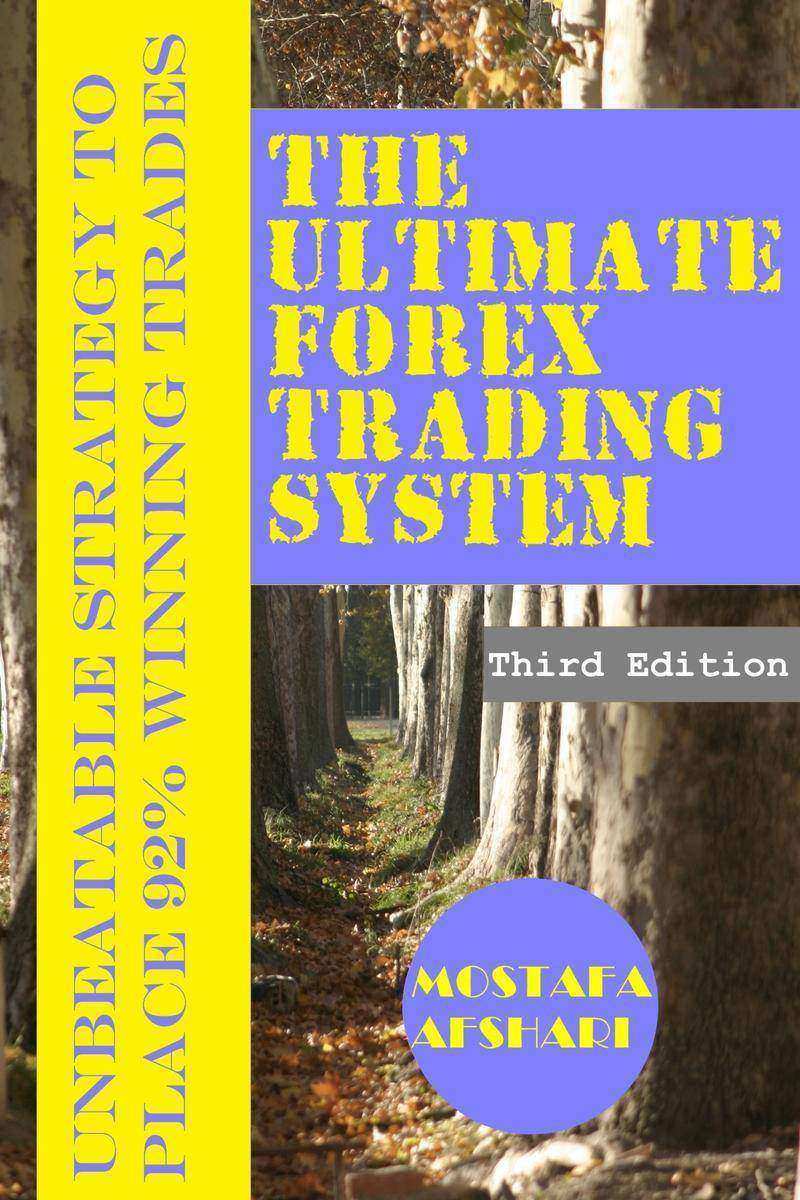
The Ultimate Forex Trading System: Unbeatable Strategy to Place 92% Winning Trad
¥237.08
The Ultimate Forex Trading System: Unbeatable Strategy to Place 92% Winning Trades

Art of Zootropolis
¥235.34
Disney's newest animated feature, Zootropolis, is a comedy-adventure starring Officer Judy Hopps, a rookie bunny cop who has to team up with fast-talking scam-artist fox Nick Wilde to crack her first case in the all-animal city of Zootropolis. This lushly illustrated book offers a behind-the-scenes view of the elaborate artistry involved in creating the film.

The Physics and Technology of Diagnostic Ultrasound: A Practitioner's Guide
¥232.01
The Physics and Technology of Diagnostic Ultrasound: A Practitioner's Guide
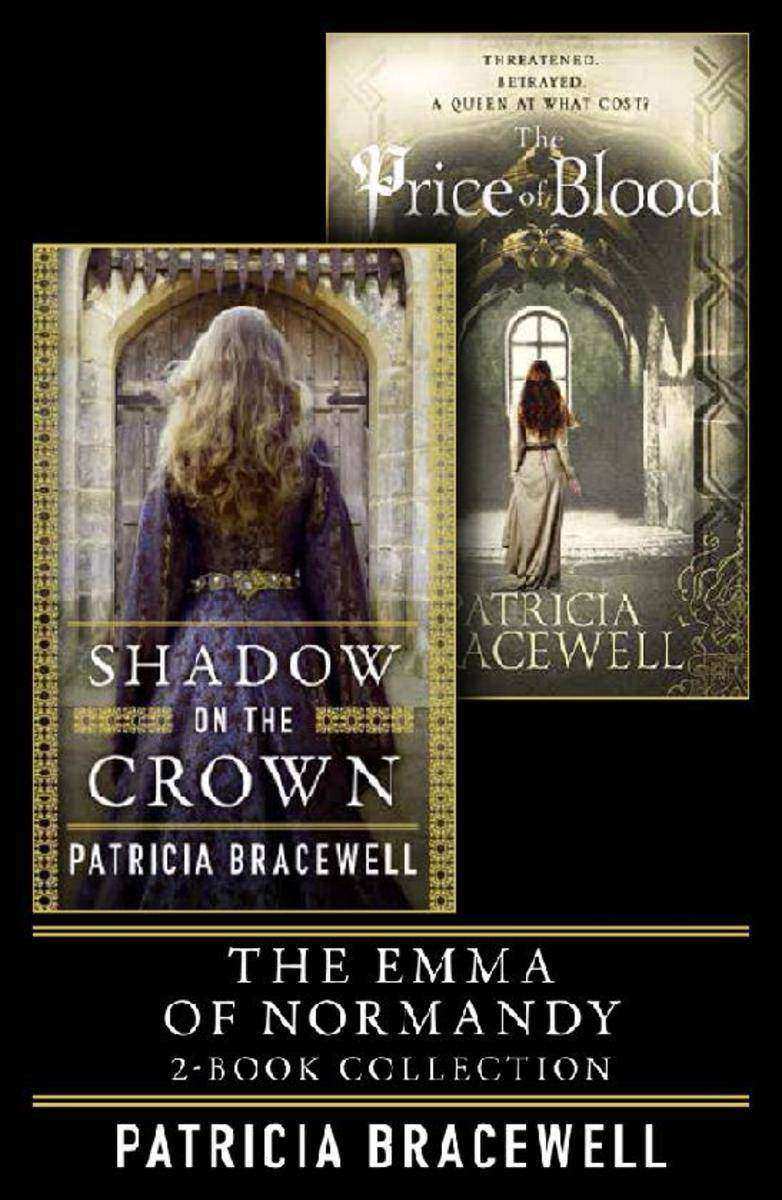
The Emma of Normandy 2-book Collection
¥231.61
In this year was King Edward slain at even-tide, at Corfe-gate, on the fifteenth before the kalends of April, and he was buried at Werham without any royal honours. Nor was a worse deed than this done since men came to Britain … ?thelred was consecrated king. In this same year a bloody sky was often seen, most clearly at midnight, like fire in the form of misty beams. As dawn approached, it glided away.

Grouse (Collins New Naturalist Library, Book 107)
¥231.22
With less than twenty species worldwide and only four British and Irish species, the grouse is surprisingly well-known. Its habitats are diverse and relatively remote – ranging from deep forests, through open moorland, to Scotland’s highest peaks. ‘Grouse: The Natural History of British and Irish Species’ covers four of the most emblematic species of our upland regions. Collectively they have the most fascinating life histories of any bird group, individually they have their own stories to tell: the ptarmigan is a resident of our highest mountain areas, the black grouse is famous for its extraordinary mating displays, the capercaillie is one of our largest birds and the red grouse, whilst no-longer one of the few British endemics, is one of the most heavily researched species. All four face similar problems, including habitat loss, predators, pests, disease and food shortage. This is compounded by issues of managed animal populations and controversy surrounding the commercial worth of grouse. This volume in the New Naturalist series, written by two of the world's leading grouse specialists, offers a fascinating insight into the natural history and biology of these birds, including aspects of their behaviour, the historical relevance of their names, the reasons behind population fluctuations and international conservation efforts.

Southern England (Collins New Naturalist Library, Book 108)
¥231.22
Illustrated with beautifully detailed photographs throughout, New Naturalist Southern England comprehensively explores the formation of these wonderful landscapes that are so universally admired. Most people share an enthusiasm for beautiful and breathtaking scenery, explored variously through the physical challenge of climbing to the top of the tallest mountains or the joy of viewing the work of a painter; but while easy to admire from a distance, such landscapes are usually difficult to explain in words. Harnessing recent developments in computer technology, the latest New Naturalist volume uses the most up-to-date and accurate maps, diagrams and photographs to analyse the diverse landscapes of Southern England. Peter Friend highlights the many famous and much loved natural landscapes of the southern half of England, ranging from the Chalk Downs to the bays of Cornwall, Devon and Dorset, and provides detailed explanations for the wide variety of natural events and processes that have caused such an exciting range of surroundings. Setting apart the topography that has resulted from natural rather than man-made occurrences, Friend focuses on each region individually, from East Anglia to London and the Thames Valley, and explains the history and development of their land structures through detailed de*ions and colourful diagrams.

Fishing Flies
¥231.22
Anyone who has taken a class from a decent teacher will be able to make flies from the de*ions given here. -- Booklist A mind-boggling array of flies.... The volume brims with hard-won advice and entertaining anecdotes. -- Waterloo Record Fishing Flies is a complete guide that describes every conceivable type of freshwater and saltwater fly. It examines the entire range of fishing flies--more than 1,300 in all--many by some of the world's most famous fly-tiers. These flies have been selected not only for their worth as lures but for their contribution to the progress of fly-tying. This smaller paperback edition is more portable than the hardcover, making it easy for fly fishers to take it along on fishing trips. Every fly in the book can be tied using readily-obtained material. Specially taken color photographs show hundreds of fly styles and variations with as many as six flies per page. The author describes their history, including literary references and fishing folklore, points out special features and gives detailed tying instructions where needed. He recommends the most favorable conditions in which to use the fly and provides important information on how the flies correspond with the fishes' reproductive cycles. Fishing Flies covers: ?Introduction and the earliest flies ?Trout and grayling flies ?Streamers and bucktails ?Flies for salmon, sea trout and steelhead ?Flies for freshwater predators ?Saltwater flies. Useful tips, time-tested fishing advice, recommendations for environmental conditions and fishing style, historical images, entertaining anecdotes and an extensive bibliography round out this fascinating and complete resource.

Books and Naturalists (Collins New Naturalist Library, Book 112)
¥231.22
Natural history, perhaps more than any other pursuit or study, has always relied heavily on books. Without their basic function of enabling the different kinds of animals and plants to be described in adequate detail, the subject could never have come into being and gone on to thrive as it does today. In displaying nature's colourful diversity, books have stimulated attempts to capture the wonders of the natural world with the pencil or in paint. They have challenged their readers to seek out and record what the countryside has to offer, and they have enabled naturalists to convey to unknown fellow spirits the excitements of 'the chase' and of unexpected discoveries. In this latest book in the highly-acclaimed New Naturalist series, David Elliston Allen explores the often complicated ways in which books on the flora and fauna of these islands have been published through the years, from the earliest days of printing through to the era of the computerised distribution atlas and the giant multinational compendium. Difficult to free from market constraints, publication in book form would have remained an elusive aim for all too many naturalists but for the regular trickle of individual publishers who have shared their delight in the subject and leant over backwards to assist it. The important role played by these allies, the colourful backgrounds of many of the authors and the sometimes fraught relationship between the partners in a process in which the aims of business and learning do not necessarily coincide are among the many themes woven together into a fascinating account, which also breaks new ground.
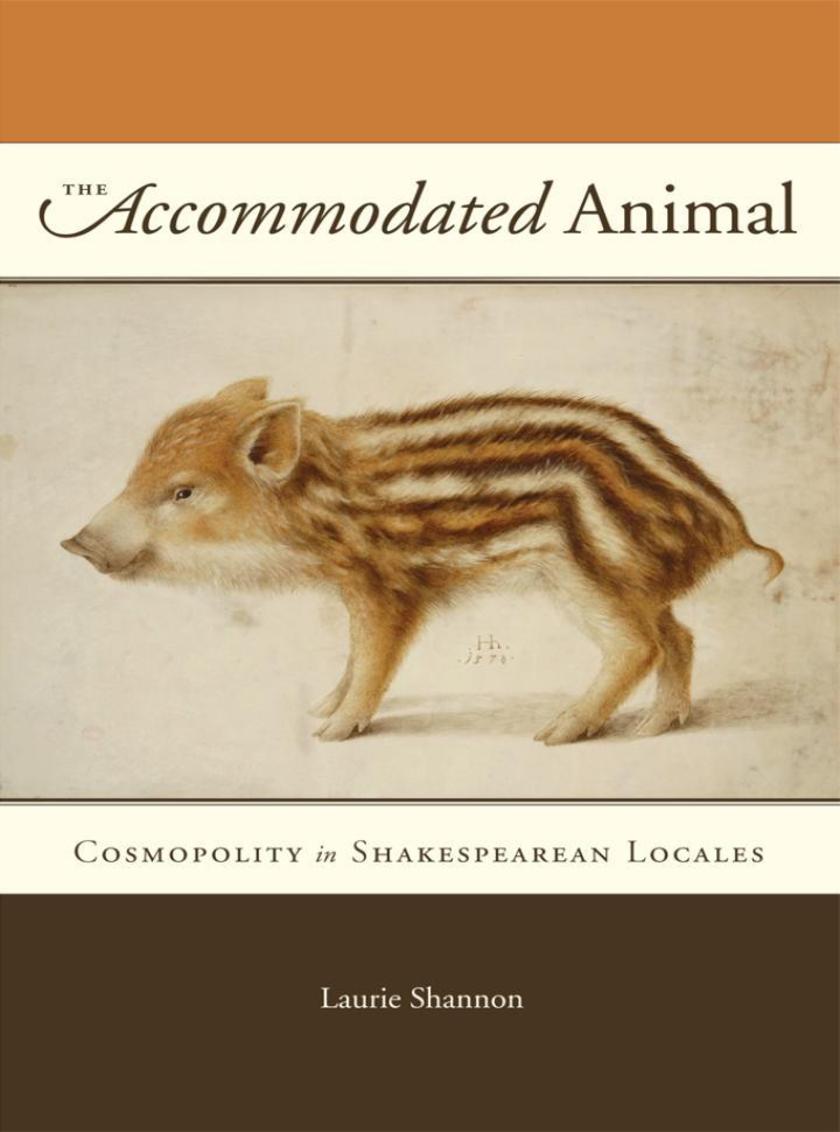
Accommodated Animal
¥229.55
Shakespeare wrote of lions, shrews, horned toads, curs, mastiffs, and hellhounds. But the word "e;animal"e; itself only appears very rarely in his work, which was in keeping with sixteenth-century usage. As Laurie Shannon reveals in The Accommodated Animal, the modern human / animal divide first came strongly into play in the seventeenth century, with Descartes's famous formulation that reason sets humans above other species: "e;I think, therefore I am."e; Before that moment, animals could claim a firmer place alongside humans in a larger vision of belonging, or what she terms cosmopolity.?With Shakespeare as her touchstone, Shannon explores the creaturely dispensation that existed until Descartes. She finds that early modern writers used classical natural history and readings of Genesis to credit animals with various kinds of stakeholdership, prerogative, and entitlement, employing the language of politics in a constitutional vision of cosmic membership. Using this political idiom to frame cross-species relations, Shannon argues, carried with it the notion that animals possess their own investments in the world, a point distinct from the question of whether animals have reason. It also enabled a sharp critique of the tyranny of humankind. By answering "e;the question of the animal"e; historically, The Accommodated Animal makes a brilliant contribution to cross-disciplinary debates engaging animal studies, political theory, intellectual history, and literary studies.
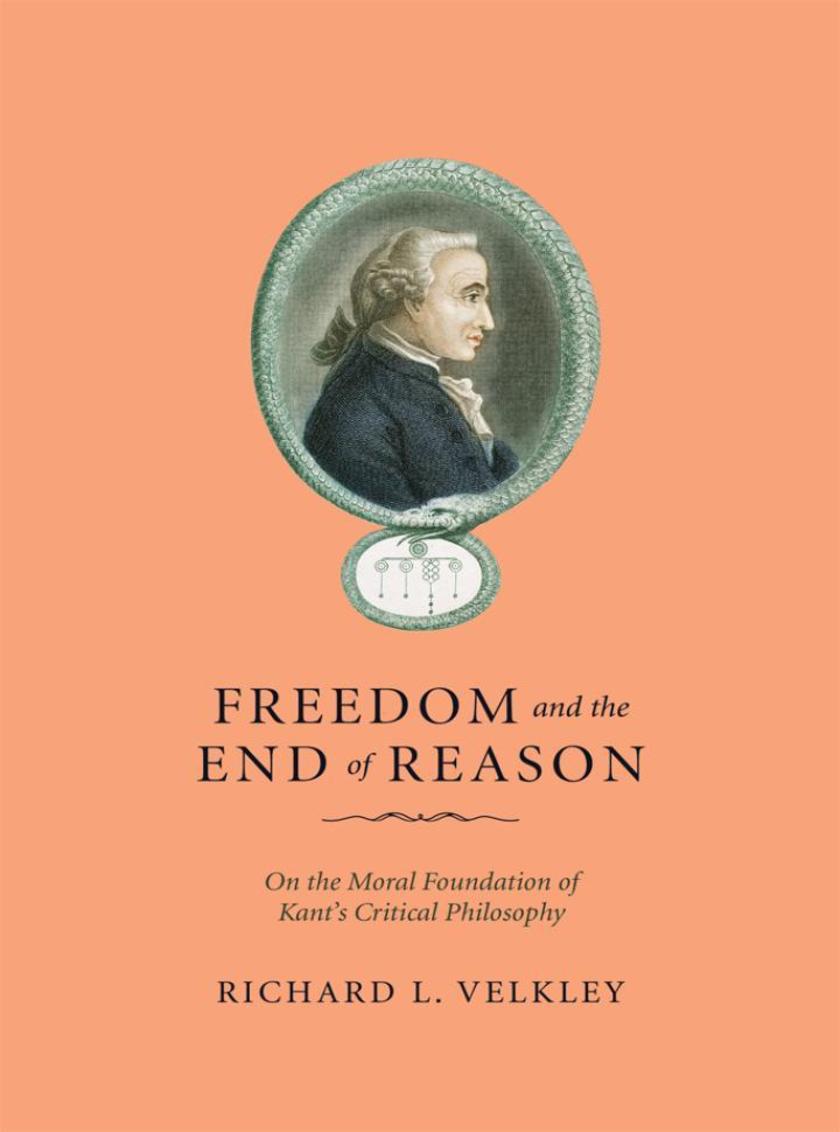
Freedom and the End of Reason
¥229.55
In Freedom and the End of Reason, Richard L. Velkley offers an influential interpretation of the central issue of Kant's philosophy and an evaluation of its position within modern philosophy's larger history. He persuasively argues that the whole of Kantianism-not merely the Second Critique-focuses on a "e;critique of practical reason"e; and is a response to a problem that Kant saw as intrinsic to reason itself: the teleological problem of its goodness. Reconstructing the influence of Rousseau on Kant's thought, Velkley demonstrates that the relationship between speculative philosophy and practical philosophy in Kant is far more intimate than generally has been perceived. By stressing a Rousseau-inspired notion of reason as a provider of practical ends, he is able to offer an unusually complete account of Kant's idea of moral culture.
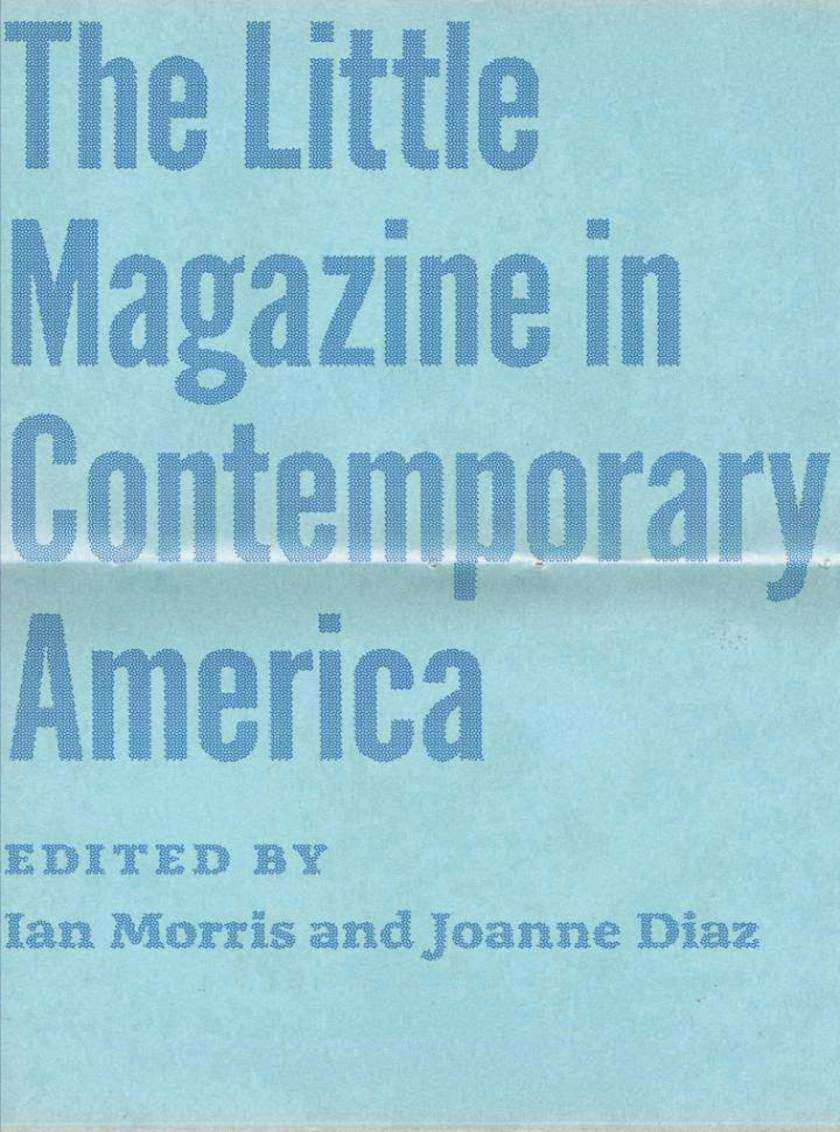
Little Magazine in Contemporary America
¥229.55
Little magazines have often showcased the best new writing in America. Historically, these idiosyncratic, small-circulation outlets have served the dual functions of representing the avant-garde of literary expression while also helping many emerging writers become established authors. Although changing technology and the increasingly harsh financial realities of publishing over the past three decades would seem to have pushed little magazines to the brink of extinction, their story is far more complicated.In this collection, Ian Morris and Joanne Diaz gather the reflections of twenty-three prominent editors whose little magazines have flourished over the past thirty-five years. Highlighting the creativity and innovation driving this diverse and still vital medium, contributors offer insights into how their publications sometimes succeeded, sometimes reluctantly folded, but mostly how they evolved and persevered. Other topics discussed include the role of little magazines in promoting the work and concerns of minority and women writers, the place of universities in supporting and shaping little magazines, and the online and offline future of these publications.Selected contributorsBetsy Sussler, BOMB; Lee Gutkind, Creative Nonfiction; Bruce Andrews, L=A=N=G=U=A=G=E; Dave Eggers, McSweeney's; Keith Gessen, n+1; Don Share, Poetry; Jane Friedman, VQR; Amy Hoffman, Women's Review of Books; and more.?




 购物车
购物车 个人中心
个人中心



